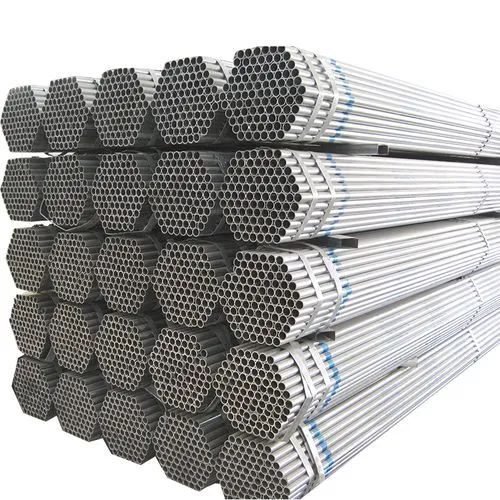Galvanized Pipe: Great Plumbing Solution
Introduction:Known for its durability and versatility, galvanized pipe offers numerous benefits for both residential and commercial applications. When it comes to plumbing systems, the choice of piping material is crucial. One option that has been widely used for decades is galvanized pipe. In this blog post, we will explore what galvanized pipe is, its advantages, potential drawbacks, and its common uses in plumbing.
What is Galvanized Pipe? Galvanized steel pipe is a steel pipe that has been coated with a layer of zinc to protect it from corrosion. The process of galvanization involves immersing the steel pipe into a bath of molten zinc, creating a protective barrier on its surface. This coating not only prevents rust and corrosion but also extends the lifespan of the pipe.
Advantages of Galvanized steel Pipe:
- Corrosion Resistance: The zinc coating on galvanized steel pipes acts as a sacrificial layer, protecting the underlying steel from rust and corrosion caused by moisture and exposure to the elements. This makes galvanized pipes ideal for outdoor and underground applications.
- Durability: Galvanized steel pipes are known for their strength and long-lasting performance. They can withstand high pressure, making them suitable for carrying water and other fluids in plumbing systems.
- Versatility: Galvanized steel pipes can be used for various purposes, including water supply lines, sewage systems, irrigation, and even structural applications. Their adaptability makes them a popular choice in both residential and commercial settings.
- Easy Installation: Galvanized steel pipes are relatively easy to install due to their threaded ends, which allow for simple connections using fittings. This ease of installation saves time and labor costs during plumbing projects.
Drawbacks and Considerations:
- Potential for Corrosion: Over time, the zinc coating on galvanized steel pipes may wear off or become damaged, exposing the underlying steel to corrosion. This can lead to reduced water flow, leaks, and eventual pipe failure. Regular inspection and maintenance are essential to identify and address any signs of corrosion promptly.
- Limited Lifespan: While galvanized pipes offer good durability, they have a finite lifespan. Factors such as water quality, usage patterns, and environmental conditions can affect their longevity. In some cases, galvanized pipes may need to be replaced with newer plumbing materials, such as copper or PEX, to ensure optimal performance.

Common Uses of Galvanized Pipe:
- Water Distribution: Galvanized steel pipes were commonly used in the past for water supply lines in residential and commercial buildings. However, their use in new construction has declined due to the emergence of alternative materials.
- Drainage and Sewage Systems: Galvanized pipes are still widely used for drainage and sewage systems, especially in older properties. Their corrosion resistance makes them suitable for handling wastewater.
- Outdoor Plumbing: Galvanized pipes are often utilized for outdoor plumbing applications, such as irrigation systems, sprinkler lines, and well installations. The zinc coating provides protection against the elements.
Conclusion: Galvanized steel pipe has been a trusted plumbing solution for many years, offering durability, corrosion resistance, and versatility. While its use in new construction has decreased, galvanized pipes continue to serve various purposes in drainage, sewage systems, and outdoor plumbing. If you have galvanized pipes in your property, it’s important to monitor their condition and address any signs of corrosion promptly. As with any plumbing material, regular maintenance and periodic inspections are key to ensuring the longevity and efficiency of your plumbing system.

